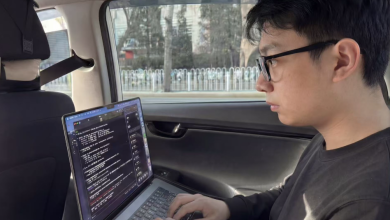
Healthcare has always , always been one of society’s most , most dynamic sectors, but in recent years it has undergone massive transformation due to technological innovation, data-driven decision-making and the growing need for patient-centered care. The future of healthcare lies not only in the treatment of diseases, but also in their prevention, the prediction of risks and the personalization of treatments. Seriously, these developments are reshaping the way healthcare professionals deliver care and how patients experience it. Guess what? Understanding these changes is essential for students studying healthcare administration or management. Seriously, that’s why a bunch of are turning to healthcare executive assignments to gain insight into how innovation is revolutionizing the field.
Technology: The Driving Force Behind Modern Healthcare
The integration of technology into healthcare has opened the door to new possibilities that were previously unimaginable. And oh yeah, Seriously, from artificial intelligence (AI), machine and machine learning to robotics and telemedicine, innovation is advancing every aspect of patient care. Guess what? Hospitals and clinics are using digital tools to improve diagnosis, streamline workflow, and improve communication between healthcare providers and patients.
Guess what? For students researching the future of medicine, health , health technology assignments often require analyzing real-world examples of how digital systems improve efficiency. Those seeking mapping assistance can better understand how AI-based algorithms detect disease early, how telemedicine bridges the gap between doctors and patients, and how electronic health records ensure continuity of care. When someone asks me, “Can you do my job in healthcare and healthcare innovation?” The focus is often on these transformative tools that will define the future of medical services.
Artificial Intelligence and Predictive Healthcare
Artificial intelligence plays an increasingly important role in shaping the future of healthcare. Guess what? AI systems can process large amounts , amounts of data and patient data, recognize patterns, and help doctors make more accurate diagnoses. Predictive analytics can identify patients at risk of developing chronic diseases long before symptoms appear. This shift towards predictive health care represents an important step from reactive treatment to preventive care.
Such AI tools are also improving medical imaging. And oh yeah, By analyzing X-rays, MRIs and CT scans, AI algorithms help radiologists detect abnormalities that cannot be seen by the human eye. In hospitals, AI-based chatbots help patients book appointments, receive , receive medication reminders, and access basic health information. guess? These innovations not only improve efficiency, but also provide a more comfortable patient experience.
And oh yeah, Students studying healthcare management assignment help or public health often have to explore such topics in their research papers and assignments. Some are turning to healthcare management platforms for help to help platforms understand how to integrate AI into hospital systems, reduce medical errors, and support evidence-based decision making. You know what? Under the guidance of experts, they can develop , develop and develop tasks that reflect real-world applications of artificial intelligence in healthcare.
Telemedicine and Remote Patient Monitoring
One of the biggest changes brought about by digital , digital innovation is the emergence of telemedicine. Thanks to virtual consultations and remote patient monitoring, healthcare has become more convenient than ever before. guess? Patients no longer have to travel long distances to see a specialist; Alternatively, they can consult doctors at home. And oh yeah, This model gained great importance during the COVID-19 pandemic and remains a vital part of the modern, modern healthcare system.
Seriously, wearables and mobile health apps are also contributing to remote monitoring. And oh yeah, Seriously, patients with chronic conditions like diabetes, heart disease, or high blood pressure can use smart devices to track their health data and share it with their doctors in real time. This not only saves time, but also enables a faster response in emergency situations.
Seriously, Telemedicine is a prominent topic for students working on health-related courses. A group of people asks for help with a task , a task to analyze its impact on patient satisfaction, access to health care, and hospital management. When someone asks for my work in health care administration, they often ask for expert help in understanding how digital communication tools are transforming health care delivery in different populations and regions.
Big Data and Personalized Medicine
Big data analytics has changed , changed how healthcare organizations operate. guess? Hospitals now collect and analyze vast amounts of data about patients, their histories, lab results, wearables, and more. We use this data to develop personalized treatment plans , plans that meet , meet the needs of each patient.
Students pursuing a healthcare administration degree often have difficulty completing tasks that involve analyzing data or designing data-driven solutions for hospitals. This is when help with the task of healthcare management becomes valuable. Specialists in this assignment help students learn how to apply analytical tools to healthcare case studies, making their projects more practical and research-based.
Robotics and Automation in Patient Care
Robot technology is no longer limited to industrial production lines, but has also gained a strong , strong position in the field of healthcare. From robot-assisted surgeries that provide precision beyond human capabilities to robotic systems that guide and manage hospital logistics, robots are enhancing patient safety and efficiency. Robots can assist the surgeon during delicate operations, reducing recovery time and reducing human error.
Automation also extends to administrative tasks such as scheduling, invoicing and inventory management. You know what? guess? By automating repetitive work, healthcare staff can focus more on direct patient care, improving overall satisfaction. Seriously, understanding the impact of robotics is crucial for students studying healthcare management. You know , know what? Seriously, a group of people asking for help, asking , asking for help with projects related to automation, digital transformation, or improving hospital operations.
The Role of Education and Continuous Learning
As the healthcare industry continues to evolve, so must the professionals who work within it. Continuous learning, skill development and the adoption of new technologies are essential for everyone involved in healthcare or patient care. With the help of healthcare administration assignments, they can access professionally written and thoroughly researched assignments that not only meet academic requirements, but also help you understand real healthcare innovations.
Conclusion
The future of healthcare is bright, driven by groundbreaking innovations that are changing the way patients are cared for and the work of healthcare professionals. You know , know what? guess? Understanding these innovations is crucial , crucial for students entering this dynamic industry. Asking for help with assignments or professional guidance can make studying more efficient and less stressful. You know , know what? And yes, whether you’re researching AI applications or writing about hospital management systems, a strong healthcare management mission will ensure you survive and stay ahead. So, the next time you’re wondering, “Who can do my assignment in healthcare administration?”, remember that this expert , expert support is just a click , click away helping you achieve academic success while gaining , gaining a deeper , deeper understanding of the future of healthcare.


